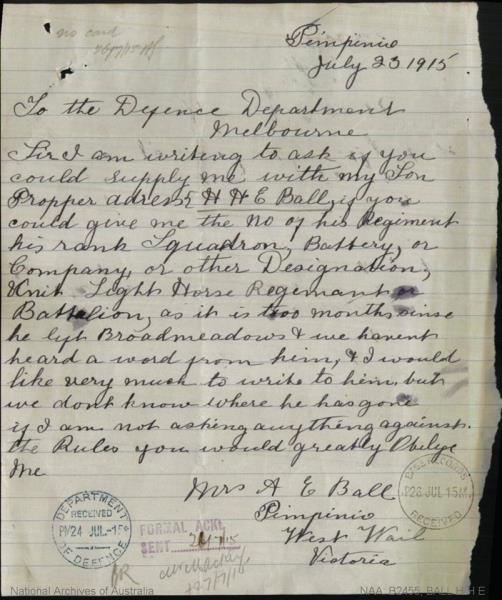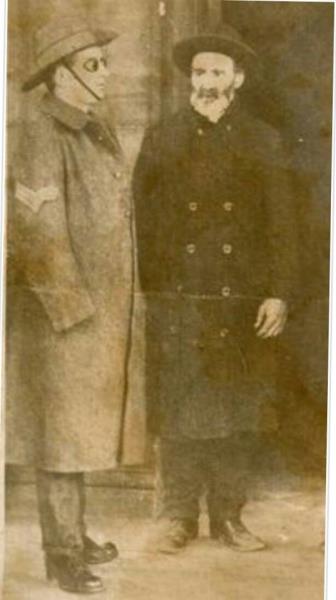
By ANEEKA SIMONIS
IT IS with great pride that a Pakenham woman tells the story of her great uncle Ephrus Hanley Hugh Ball, who’d overcome severe war injuries to lead a successful farm in northwest Victoria.
Hugh, who served as a sergeant in the 9th Light Horse Regiment, was maimed and blinded as he gallantly fought in Gallipoli at 19 years of age.
During the Battle of Hill 60, Hugh’s right arm was blown off at the elbow and he became totally blind after a home-made jam tin bomb exploded in his hand, his great niece Theresa Peters said.
“My uncle was a brave man… just like many other men and women who went to the First World War.”
His mother Annie Theresa Ball wrote to the Defence Department in July 1915 in search of her son.
“It has been months since he left Broadmeadows and we haven’t heard word from him,” she wrote, requesting his forwarding address.
Despite his wartime disabilities, Hugh, who had “beautiful blue eyes”, returned from war and went on to run a poultry farm in Castlemaine – a feat that continually inspired his proud relatives.
“(His disabilities) never stopped him when he returned to Australia. He was a young man that never gave up ever, even when he was totally blind,” Theresa said.
An article in the Castlemaine Mail on Thursday 21 April in 1949 said the 53-year-old ex-sergeant was the successful owner on a poultry farm with over 2000 birds.
Theresa said he was very proud of his farm and prize roosters imported from New Zealand.
“He loved his farm,” she said.
Before establishing the Castlemaine-based poultry farm, Hugh was a Church of Christ minister for 18 years.
He retired in 1941 due to health reasons.







